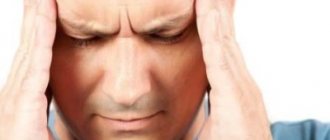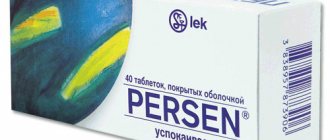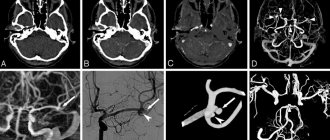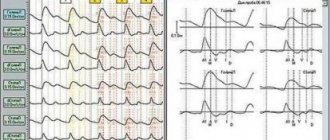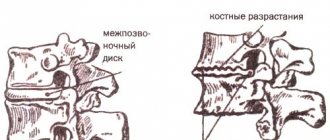What it is
Venotonics are medications whose action is aimed at normalizing smooth muscle in the walls of capillaries . Also, such drugs will help improve the elasticity of the walls of blood vessels and increase resistance to blood flow. Venotonics are used to treat venous insufficiency. This disease is characterized by an abnormal increase in the lumen of the veins.
How do they work?
Human vessels are always in unconditional static tension. This function is very closely related to the physical phenomena of blood flow. If the capillaries were weakened, they would not be able to withstand blood pressure .
Weakened vessels are prone to stretching. During any inflammatory process, a weak venous wall becomes the center of thrombus formation. When venous outflow is impaired, venotonics help strengthen the venous wall and also restore its tone.
Possible complications
If you do not use drugs for the prevention and treatment of vascular diseases, there is a risk of blood clots and the development of trophic ulcers, thromboembolism and other problems.
In infectious and inflammatory diseases there is a risk of bleeding. Of course, the decision on choosing and taking medications should be made by the doctor.
To do this, the patient will be recommended to undergo examination: ultrasound, Doppler sonography, blood tests. If the disease is advanced and has a large lesion, then these medications may not be enough, so a specialist may suggest sclerotherapy of the veins or surgery.
Groups of venotonics
Venotonic drugs for varicose veins can be produced in different forms. General action drugs are taken internally by the patient. Such means include:
- pills;
- syrups;
- homeopathic granules;
- plant extracts.
There are also local venotonics: ointments, gels, herbal compresses. Your doctor may prescribe other medications. Injections are one way to use a blood thinner.
Venotonic drugs for varicose veins, depending on their chemical composition, can be divided into the following groups:
- Angioprotectors , which are developed based on hesperidin and diosmin. These are tablets. They can reduce swelling, relieve pain, and prevent cramps. These include drugs such as Venarus, Vazokert, Detralex, Antistax, Phlebodia, Diosmin and others.
- Medicines containing saponins . Such medications do an excellent job of treating pain in the veins. These include Escusan drops, Venitan cream and gel.
- Rutosides . These are venotonic drugs for varicose veins, which improve the flexibility of capillary walls. They are based on an artificial substitute, rutin. Products are available in the form of gels, creams and capsules. These include: Troxevasin, Troxerutin, Venoruton.
- Anti-inflammatory and anesthetic venotonic agents, which contain lidocaine. Medicines are produced in the form of suppositories, capsules and creams. It is not recommended for use by children and during pregnancy in the first trimester. This group includes: Procto Glivenol, Glivenol.
- Combined medications in curing an illness . Such products contain herbal and synthetic components. The list includes: Angionorm, Doppelhertz, Venorm.
- Products of natural origin . Such venotonic ointments have extremely good reviews. A group of medications are sold in pharmacies without prescriptions.
Attention! It is advisable to prescribe venotonics for varicose veins of the legs at the beginning of the development of the disease. The use of medications is most effective with complex therapy. It is recommended to take not only medications, but also to combine them with massage and physiotherapy.
Varicose veins of the pelvis most often occur in the third trimester of pregnancy or after surgery in this area. Venotonics for pelvic varicose veins eliminate suppuration and prevent the occurrence of blood clots. Detralex is often prescribed for this disease. This medicine has a very strong anti-inflammatory effect.
For more information about what pelvic varicose veins are and how to treat them, read the link.
When does it make sense to use venotonics?
Typically, patients do not start using venotonic drugs for varicose veins immediately, but at the second stage of the disease, when a venous network and nodes already appear. Such medications can stop the negative process and effectively eliminate heaviness, swelling and pain.
When is the best time to take pills?
But such statistics are largely associated with late visits to the doctor. Considering that it is much easier to prevent any disease than to persistently treat it, it makes sense to start venotonic therapy at the compensated or initial stage of varicose veins. In combination with other preventive measures, such drugs can slow down the further development of pathology.
As a preventive measure for varicose veins and for treatment in the initial stages, venotonics are prescribed in courses lasting 2 to 3 months twice a year.
Important! A phlebologist should choose the best veinotonics for varicose veins and select a treatment regimen, based not only on the stage of the disease, but also on the presence of concomitant and provoking diseases in the patient, as well as contraindications.
If we talk about advanced stages, when doctors prefer surgical intervention, they do not refuse treatment with venotonics. Even in the most difficult situations, such medications can prevent the appearance of trophic ulcers, and if they are present, promote rapid healing.
Even before surgery, the patient is recommended to take drugs of this group for a long time to improve blood flow in the tissues. Immediately after surgery, venotonics help speed up rehabilitation by restoring blood flow in the extremities.
It turns out that treatment with venotonics for varicose veins will be effective at any stage, including as preventive and rehabilitation drugs.
Drugs allowed during pregnancy
During gestation, the load on the limbs increases significantly. If the first signs of the disease are noticed, then you should definitely begin to prevent the disease. Thanks to this, various complications can be avoided.
Taking medications without the approval of a specialist is prohibited. But usually the following venotonics are prescribed during pregnancy:
- Detralex. Restores capillary tone, removes swelling, stimulates blood circulation.
- Troxevasin . Promotes tissue regeneration, strengthens vein walls.
- Aescusan . Reduces burning, relieves pain.
- Phlebodia 600. Stimulates lymphatic drainage, relieves inflammation, relieves swelling.
- Lyoton. Helps thin the blood and prevent blood clots.
- Venorm . Effective as an auxiliary medicine in the treatment of varicose veins in pregnant women.
Venotonics for varicose veins: Detralex, Phlebodia, Troxevasin
From this article you will learn: what therapeutic effects do venotonics have for varicose veins of the legs, indications for their use. What drugs are most effective, and is it possible to completely solve the problem of varicose veins with their help?
Venotonics (phlebotonics) are a group of medications whose action is aimed at strengthening venous vessels and improving blood circulation in them. Such therapeutic effects make these drugs one of the main components of the complex treatment of patients with varicose veins and chronic venous insufficiency of the lower extremities.
With their help, this pathology cannot be completely cured, but it can reduce the severity of symptoms and prevent the occurrence of more severe manifestations. Modern venotonics are practically harmless to the body and are well tolerated by all patients.
The veins of the lower extremities are the main, but not the only vessels affected by phlebotonics. They also strengthen the venous plexus of the pelvis and rectum, which allows them to be used for the treatment of pelvic varicose veins and hemorrhoids. Other forms of varicose veins (esophagus and testicles) cannot be treated with venotonics.
Vascular surgeons and general surgeons are involved in prescribing drugs for the treatment of varicose veins of the legs and pelvis, selecting the dose and monitoring the effectiveness. Treatment of dilated hemorrhoidal veins with venotonics is prescribed by proctologists and general surgeons.
Description of venotonics and how they work
Venotonics restore the damaged structure and strengthen the weakened walls and valves of the veins. Venotonic drugs improve the outflow of blood and lymph from the lower extremities and reduce congestion in the venous and lymphatic vessels. They eliminate the phenomena of lymphovenous insufficiency, which underlies trophic disorders and tissue destruction of the lower extremities.
Read also: Varicose veins of the internal veins of the lower extremities symptoms
The mechanisms of action of phlebotonics are as follows:
- Direct restoration, strengthening, increasing the tone of the walls and valves of the veins, which narrows them in the area of varicose veins.
- Reducing the inflammatory process in the walls of venous vessels, which prevents destructive changes in them.
- Reducing the viscosity of venous blood, which prevents the formation of blood clots in the lumen of the veins.
- Normalization of the tone of capillaries and the smallest lymphatic ducts, which improves blood supply to tissues and reduces their swelling.
Modern venotonics have therapeutic effects not only on the veins, but also on the microvasculature (capillaries and lymphatic ducts) in the lower extremities. They do not strengthen the arteries of the legs and do not affect blood circulation in them.
Flavonoids and rutosides: why are they needed?
In nature, there is a group of substances that belong to antioxidants or regulators of enzymatic processes, since they have a structure and chemical composition similar to hormones.
They are supplied to the human body by plant foods. They are found in berries, herbs, citrus fruits, and vegetables. These are plant pigments. They are called flavonoids. Thanks to pigments, crops have different colors.
Flavonoids help cope with:
- with rapid fatigue;
- with stress and trauma;
- increased fragility of capillaries and circulatory disorders;
- inflammatory diseases (in particular with gastrointestinal problems);
- in the off-season, with temperature changes.
There are also rutosides, which are glycosides of the flavonoid quercetin. This group belongs to Vit P (or rutin). It enters the body from plant foods.
Has a beneficial effect on blood vessels:
- helps reduce capillary permeability;
- relieves inflammatory processes;
- prevents the formation of blood clots;
- antioxidant.
Therefore, the use of these substances in the treatment of varicose veins is justified, since in complex therapy they help achieve the most effective results.
Main indications for use
Venotonics are indicated for the treatment and prevention of the following diseases and conditions:
- Varicose veins of the lower extremities: dilated veins, spider veins, large varicose nodes.
- Thrombophlebitis of superficial and deep veins in the legs.
- Postthrombophlebitic syndrome.
- Chronic venous insufficiency of the lower extremities, regardless of the severity and cause of occurrence (heaviness and swelling of the legs, brown and bluish spots, redness and long-term non-healing wounds on the skin of the legs).
- Lymphostasis is stagnation of lymph (pronounced dense swelling of the legs and feet), caused by damage to the deep veins and lymphatic vessels after acute purulent-inflammatory processes (erysipelas, fasciitis).
Thrombophlebitis – inflammation of a vein with the formation of a blood clot
Names and features of the most effective drugs
All venotonics are available in tablets and forms for local application to the area of varicose veins. The general classification of the most effective modern drugs is given in the table.
According to multicenter studies, the most effective venotonics for varicose veins of the legs are drugs containing diosmin (Detralex, Phlebodia, Venodiol). But which of these drugs is the most effective cannot be said with certainty. The choice of drug depends on the experience and beliefs of the doctor, and the result of treatment depends on the individual characteristics of the patient and the pathology for which it is prescribed. An equally important point is that the medicine is of high quality, and not counterfeit, and actually produced by the original company.
One of the most frequently prescribed venotonics is Detralex. The popularity of the drug is explained by several points:
- Long-term existence in the pharmaceutical market.
- Positive feedback from patients regarding effectiveness and good tolerability.
- The presence of not only diosmin in the drug, but also hesperidin, which enhances its effect.
- The rapid onset of the therapeutic effect, which is most often noted by patients with grade 1-2 varicose veins and acute hemorrhoids, especially when taking a loading dose of the drug.
- Relatively affordable price.
Additional features of Detralex are the need for twice daily dosing and the large size of the tablets, which makes it difficult for some patients to drink them.
The main competitor of Detralex is the drug Phlebodia. Its popularity is due to the following features:
- Contains only diosmin, but in the highest dose compared to other flavonoids.
- The effect occurs gradually, but is long-lasting, which is best suited for patients with chronic stable venous pathology of the lower extremities and hemorrhoids.
- The active substance is released from the intestines throughout the day, which allows you to take the drug once a day.
Despite the relatively high price, Phlebodia is one of the favorite phlebotonic drugs among both specialists and patients.
Troxevasin and Escusan
Venotonics that are almost equally effective are derivatives of rutin (Troxevasin) and horse chestnut escin (Aescusan). Although these drugs have nothing in common in origin, they are united by the following features:
- slow onset and short duration of the therapeutic effect;
- the need for two to three times a day;
- moderately pronounced strengthening effect on the venous wall;
- lack of positive effect on capillaries and microcirculation;
- the largest application experience (decades);
- accessibility due to low price.
The most important advantage of Troxevasin and preparations based on horse chestnut is the presence of both tablet and ointment-gel forms (Troxevasin, Venitan). This allows you to enhance the effect of the active substance due to the general effect on the venous wall through the blood and local strengthening by applying to the skin of the legs.
Cyclo-3 fort
Another venotonic that is worth mentioning separately is the drug Cyclo-3 fort. The components included in its composition (a small dose of hesperidin, butcher's broom and vitamin C) provide a really good strengthening effect on the venous wall, capillaries and lymphatic ducts. Cyclo-3 fort is slightly weaker than Detralex and Phlebodia, but stronger than Troxevasin and Escusan.
The most important advantage of the drug Cyclo-3 fort is the possibility of use for varicose veins of the legs at any stage of pregnancy. It can also be used to treat exacerbations of hemorrhoids in pregnant women.
Most popular drugs
Venotonics for legs reviews vary. Using patient reviews, as well as in consultation with your doctor, you can choose a drug to treat each individual case.
Shungite balm based on a mineral of the same name is very popular. The nature of this mineral has not yet been fully explored. However, it has been established that places where shungite is present have healing properties. That is why scientists actively use this substance to produce various medicinal solutions and balms for external and internal use. It is known that shungite-based water is excellent for treating wounds, infectious and inflammatory skin lesions, allergic reactions, burns, stomatitis, diabetes, varicose dermatitis, etc.
Venotonic Shungit also contains rutin, plant extracts, essential oils and allantoin. Indications for use are varicose veins and prevention of venous insufficiency. Apply the balm to clean skin at night. If the effectiveness is insufficient, it is possible to use the drug twice a day. Contraindications include individual intolerance to the components. If you are prone to allergic reactions, it is recommended to use the balm with caution.
Another popular venotonic of natural origin is Doppelherz. This is a dietary supplement that is recommended for use if you are predisposed to venous insufficiency. Additionally, it is possible to use the drug for the complex treatment of venous insufficiency only in the initial stages. The drug consists of blueberry and black currant juices, plant extracts, grape powder, red vein concentrate and a complex of various vitamins.
The drug helps to increase the tone of veins, strengthen the walls of blood vessels, normalize the supply of nutrients to cells, remove toxins from blood vessels, and also increase the body's resistance to external and internal negative factors. It is necessary to take the product in the amount of 1 capsule two or three times a day for 2 months.
According to reviews, the drug has virtually no contraindications for use, with the exception of individual intolerance to the components.
For external use, it is advisable to use various creams. In particular, venotonic from the Faberlic brand is especially popular. Despite the fact that this is a cosmetic company, this product has an effective therapeutic and prophylactic effect. Venotonic is effective if you need to eliminate venous insufficiency and prevent the appearance of varicose veins. This drug consists of Asian centella, horse chestnut extract, oxygen complex, and menthol.
Read also: Thrombosis of the popliteal vein
The product is applied to the feet 1-2 times a day. According to user reviews, Faberlic veinotonic promotes a feeling of lightness in the legs, reduces swelling and a feeling of fatigue.
Faberlic also prevents the appearance of vascular networks and other external defects of venous insufficiency.
Contraindications and side effects
In general, all venotonics are equally well tolerated by patients and rarely cause side effects. If they occur, they are most likely associated not with the harmful properties of the drug, but with individual intolerance to its components. It can be:
- Allergic reactions in the form of rash and itching of the skin, exacerbation of chronic dermatological problems.
- Nausea, vomiting, abdominal pain and other manifestations of irritant effects on the mucous membranes of the stomach and intestines.
- Headache and dizziness.
Therefore, there is only one absolute contraindication for treatment with venotonics - any side effects or poor tolerability of a particular drug. In this case, the product can be replaced with an analogue with an identical or different active ingredient. If there are problems with the gastrointestinal tract, liver and kidneys, venotonics are not contraindicated, but the need and specifics of use must be decided by the attending physician.
Read also: What not to eat if you have varicose veins in your legs
Side effects of phlebotonics
According to generally accepted recommendations, it is better to refrain from using venotonics during pregnancy. Although studies have not documented any harmful effects on the fetus, they are not prescribed without specific indications. The most suitable drug is Cyclo-3 fort, which is characterized by an optimal ratio of potential benefit and harm.
Mechanism of action of Troxevasin
Therapeutic effects of Troxevasin:
- Improving microcirculation in the anus.
- Venous pressure decreases.
- Prevention of bleeding development.
- Blood flow in the veins is normalized.
- The walls of the pelvic vessels are strengthened.
- The risk of developing thrombosis of hemorrhoids is reduced.
- Reducing inflammation.
- Elimination of pain in the anus.
Pharmacological effects of diosmin
Diosmin is a first-class drug for the treatment of chronic venous insufficiency in hemorrhoids. The drug Detralex was developed on its basis. The drug contains diosmin in micronized form. The drug substance has increased tissue availability. The drug eliminates inflammation in hemorrhoids and prevents the development of venous bleeding.
Treatment with diosmin is carried out for 4 weeks. To achieve a therapeutic effect, take 2 capsules of the drug daily. After completing the course, take a break for six months. Next, repeat the course of therapy.
In the acute phase, the dose of the drug is different. During the first 4 days, take diosmin three times a day, 2 capsules. The next three days, the dosage is reduced by 2 capsules. Afterwards they return to the average therapeutic dose.
With the help of a drug based on diosmin, you can cope with exacerbation of hemorrhoids. Patients respond positively to the drug. Diosmin has contraindications for use and side effects.
Often there is an irritant effect on the mucous membrane of the digestive system
Patients with concomitant diseases of the digestive tract are allowed to take Detralex with caution to avoid a relapse.
Due to the lack of reliable information about the effect of diosmin on the fetus, it is not recommended to take drugs based on it during pregnancy in the first months of fetal development. The drug is not prescribed during breastfeeding.
Analogs of the drug - Phlebodia, Normaven.
What effect to expect from treatment with phlebotonics
It is impossible to cure varicose veins of the legs with the help of venotonics alone. These drugs, although important, are not the only component of treatment. This means that by themselves they cannot completely solve problems with leg veins. They reduce the severity and rate of progression of pathological changes.
How effective venotonics can be for varicose veins depends on the degree of expansion and condition of the veins and the severity of the manifestations of lymphovenous insufficiency of the legs. The weaker the venous wall is, and the more it is expanded, the less opportunity there is to restore its structure. Irreversible skin changes in the form of trophic disorders and ulcers, lymphostasis, and venous eczema cannot be completely eliminated.
Varicose veins and venous insufficiency of the 1st degree can be almost completely eliminated with venotonics in combination with compliance with lifestyle recommendations and elastic compression of the legs of 80–90%. With grade 2, the effectiveness of such therapy is no more than 50–60%, with grade 3 – 30–40%, which indicates the inevitability of surgery.
The main rule of treatment with venotonics is systematic use in courses lasting from one to 2–3 months, 2–3 times a year. Venotonic drugs will not have their full effect if taken for only a few days. Any varicose veins are a chronic disease, so a course of treatment with venotonics should be carried out throughout life. It is better to entrust decisions regarding the choice and dose of the drug, frequency and duration of administration to a specialist!
Reviews
Anastasia, 33 years old
I work as a bartender in a nightclub, so I have to be on my feet for 12-14 hours. I ignored the first signs of the disease in the form of spider veins and emerging veins. The problems started during pregnancy a year ago. My legs were constantly swelling and hurting. The veins began to stand out and nodules appeared. The doctor prescribed wearing compression garments and Detralex in combination with Lyoton. Venotonics had to be used constantly, starting from the 20th week. But now I feel great, I even managed to avoid postpartum hemorrhoids.
Valentina, 41 years old
I have been struggling with varicose veins for several years. The phlebologist prescribed various medications, but more often those that were actively advertised. Despite the price, these venotonics do not cure the disease, they only suppress the symptoms. Positive results appeared after a personnel change at the clinic. The change of phlebologist also led to a change in the treatment regimen. Detralex and Heparin ointment were prescribed.
The use of Heparin ointment helps to very quickly reduce spider veins and eliminate pain from varicose veins.
Within a week I noticed that the spider veins had become smaller, the pain stopped bothering me, and it became easier to walk even without compression stockings. I followed all the recommendations, drank and applied venotonics. The result is that the development of the disease has stopped, the symptoms have ceased to bother me.
Anatoly, 62 years old
Varicose veins appeared not so long ago. At first, the venotonic balm Doppelgerz helped, but gradually the symptoms of the disease began to manifest themselves more strongly. Since childhood, I have had a strong dislike for clinics, so I did not see a doctor until the symptoms of varicose veins became too pronounced. We prescribed venotonics: Relief suppositories and Venarus tablets. For the legs, the phlebologist recommended Heparin ointment. It has become easier now, but the problem remains.
Venotonic drugs for varicose veins: what is it, list of tablets
Venotonics are medications to normalize blood flow to blood vessels. They are used to get rid of venous insufficiency caused by stagnation of blood, leakage of fluid from the vascular lumen into adjacent tissues.
Medicines in this group cannot completely relieve the patient from the disease; they are aimed at slowing down the pathological process. They are also prescribed for the prevention of varicose veins, complications, dulling of symptoms, and improvement of condition after surgical treatment of the legs.
Pharmacology suggests restoring normal venous tone in two ways: increasing the tension of the venous walls by contracting muscle elements or reducing capillary permeability. The majority of venotonics work simultaneously, affecting tone and permeability.
According to the severity of the effect, drugs are conventionally divided into two groups:
- the first was substances that increase the contraction of muscle elements;
- in the second - substances to improve blood microcirculation.
There is no uniform classification of venotonics. It is customary to distinguish preparations for local (gel, cream, ointment, balm) and oral use (tablets). Venotonics are not produced in the form of injections. The most popular are medications made on a natural basis and with a polyvalent effect.
The choice of one remedy or another depends on the causes of varicose veins, the stage of the disease, and the presence of concomitant health problems.
What's in this article:
pharmachologic effect
Hesperidin is a substance that is the basis of many medicines. There is no drug of the same name, as it is a non-proprietary international name.
Hesperidin belongs to a group of active and active substances that, in combination with other components, are extremely effective. It has a powerful venotonic and angioprotective effect. Thanks to this, the following results can be achieved:
- Improves blood flow, ensures normal lymph outflow;
- Reduces the distensibility of veins;
- Increases the tone of blood vessels;
- Increases the elasticity of blood vessels;
- Reduces venous stagnation;
- Relieves venous insufficiency;
- Reduces the permeability of vascular cells;
- Increases capillary resistance.
Hesperidin is a flavonoid whose properties are similar to rutin and quercetin. The substance actively dissolves in a small amount of acidic or alkaline medium.
In addition, it is not produced by the human body. When hesperidin enters the body, the substance begins to have the following effects:
- Antioxidant – removes accumulated waste and toxins, eliminates free radicals;
- Anti-inflammatory – stops inflammatory processes;
- Anti-allergic – allows you to quickly get rid of the manifestations of an allergic reaction;
- Immunostimulating – increases the body’s protective functions;
- Antispasmodic – allows you to get rid of pain;
- Hypolipidemic – ensures the normal course of metabolic processes;
- Vasoprotective – increases the elasticity of blood vessels, relieves congestion;
- Choleretic – normalizes the functioning of the gallbladder;
- Pain reliever – relieves muscle spasms;
- Wound healing – ensures accelerated healing of any damage to the skin;
- Sedative – calms, normalizes the functioning of the nervous system;
- Antitumor – reduces the risk of cancer;
- Antibacterial – kills all pathogenic microorganisms.
Hesperidin normalizes the production of natural collagen, which helps strengthen connective tissue. In addition, this substance normalizes peripheral blood circulation and restores lymph outflow.
Regular therapy with drugs based on it allows you to bring all blood counts back to normal, as well as reduce cholesterol levels. This inhibits the action of certain enzymes that negatively affect the condition of blood vessels, and also reduces the production of histamine.
Such therapy can normalize the functioning of the liver, as well as the endocrine glands. This leads to the restoration of natural estrogen levels.
The use of hesperidin protects against bone loss, which can occur due to infection by macrophages that destroy it. When taking such medications, the risk of sepsis due to the antibacterial properties of the drug is zero.
Active ingredients of venotonics
All drugs against varicose veins consist of different chemical and natural substances. There are several groups of active components that will become the basis for systemic and local medications.
To eliminate swelling, pain, cramps and prevent trophic disorders, medications are used that contain the substances hesperidin, diosmin and their derivatives. Representatives of this group are Venarus, Detralex, Phlebodia, Antistax tablets.
In the fight against fragility of blood vessels and impaired local circulation, venotonics for varicose veins with the addition of saponins help. Such substances are present in large quantities in the leaves and fruits of horse chestnut, grapes and licorice grass. They can be found in Aescusan drops and Venitan cream.
In order to stimulate contraction of the smooth muscles of large vessels and strengthen capillaries, medicine recommends the use of venoprotectors with vitamin P. These drugs are:
The action of synthetic drugs is aimed at suppressing pain and the inflammatory process of varicose veins. Popular representatives of the group will be Glivenol and Tribenoside.
There are also combination medications that combine the main active ingredients of several medications for varicose veins.
The ranking of the most popular drugs in this group includes lymphotropic drugs Venorm, Anavenol, Angionorm.
Who is indicated for using venotonic?
Venotonic drugs do not have the ability to cure the disease completely, so they are prescribed in order to prevent further progression of the pathology and provide the following therapeutic effects:
- Providing preventive effects. This point should be paid special attention to groups of people who are at risk: those who, due to the nature of their work, are forced to stand or sit for a long time, persons with a hereditary predisposition to varicose veins, patients with systemic diseases such as diabetes mellitus 1 and type 2, as well as arterial hypertension.
- Eliminating the manifestations of the disease and improving the quality of life of patients: getting rid of the feeling of heaviness and pain in the legs, eliminating cramps and swelling.
- Prevention of the development of serious complications: trophic disorders accompanied by the formation of ulcers and infected wounds, thromboembolism.
- Medicines are used in the period before preparation for surgical or minimally invasive treatment, as well as during the rehabilitation period in order to provide a general strengthening and preventive effect.
Venotonics for legs in tablets for varicose veins must be combined with the use of gels and creams. Additionally, alternative treatment methods may be used: using medicinal herbs, apple cider vinegar, wearing compression stockings, and moderate physical activity. It is important to lead a healthy lifestyle, eat fruits and vegetables rich in vitamin C.
Detralex, Venarus, Phlebodia
Detralex has become the most popular medicine from the group of venotonics; the tablets thin the blood, increase the tone of blood vessels, capillaries, their strength and permeability.
The drug has a positive effect on the lower extremities, eliminating heaviness and swelling. After treatment, the patient feels well, his ability to work remains, and the functioning of his veins improves.
Detralex tablets are also indicated for getting rid of hemorrhoids, alleviating the symptoms of varicose veins, and eliminating the condition after undergoing surgical treatment. The medicine is taken 2 tablets per day, depending on the severity of the pathological process, the dosage also changes. The cost of the drug in a large package (60 pieces) is about 1,500 rubles.
A substitute for Detralex is the Russian drug Venarus. Despite the almost identical composition, the price of Venarus tablets is about 900 rubles. The medicine is indicated for solving problems:
- relief of varicose veins;
- eliminate leg fatigue;
- improving lymphostasis;
- increasing venous tone.
Treatment must be taken twice a day, the first tablet is taken in the morning after breakfast, the second with the last meal. The duration of therapy is determined by the phlebologist individually.
Another analogue of the drug discussed above is Phlebodia. Other medications are prescribed more for the prevention of varicose veins and treatment of the initial stages of the disease. This venotonic is indicated in severe cases when surgical treatment remains in question.
The main advantage of the medicine is the possibility of use during pregnancy and breastfeeding. The price of tablets varies from 800 to 1300 rubles per pack of 30 pieces.
Read also: Varifort for varicose veins, opinion of Elena Malysheva
A more detailed description of the drugs can be found in the instructions for use.
Venotonic herbs
Treatment of varicose veins in the legs with venotonic herbs minimizes the risk of side effects. The substances contained in plants are not limited to their effects only on the affected vessels, but have a general strengthening effect on the entire body.
Venotonic herbs have a mild effect, so a course of them is required. Prepared from plants:
- decoctions for internal use. The course of treatment requires treatment for 45-60 days. A repeat course can be completed no earlier than after 7-10 days;
- masses for creating ointments and compresses. The course of treatment is 7-30 days.
Venotonic herbs can be used for preventive purposes, to treat the initial stages of varicose veins. In advanced forms of the disease, it is recommended to use venotonic herbs to increase the effectiveness of prescribed drug therapy. The disadvantage of herbal medicine is the need to prepare 1 serving of medicine daily, because during storage, herbal masses and decoctions lose their healing properties and deteriorate.
Horse chestnut is popular in the treatment of varicose veins. A decoction is prepared from the fruits and inflorescences of the plant (1 tablespoon of dry mass per 0.5 liter of boiling water), drink 0.25 cups 3 times a day to normalize the tone of blood vessels, prevent the development of thrombosis, and restore blood flow.
Horse chestnut is popular in the treatment of varicose veins. A decoction is prepared from the fruits and inflorescences of the plant.
Crassula, also called money tree, is used to prepare compresses. Its juicy leaves are passed through a meat grinder. For 1 glass of green mass, take 0.5 liters of alcohol, mix and leave in a closed glass container for 14 days, then filter. A napkin moistened with tincture is applied as a compress to the affected veins for 30 minutes to get rid of swelling, inflammation, and pain.
Antistax, Doppelherz, Troxevasin, Heparin ointment
Venotonics of plant origin are produced in the form of capsules and gel, they can be used in combination. An effective representative of this group of medications is the drug Antistax. The main substance is grape leaf extract.
Due to its absolute safety for health, Antistax can be used during pregnancy. Swelling of the legs is relieved, pain is eliminated, blood microcirculation is improved, and the venous walls are strengthened. The cost of tablets starts from 600 rubles per pack of 20 pieces, the price of a gel for topical use is about 900 rubles.
A good way to cure varicose veins is to use the dietary supplement Doppelherz. The dietary supplement is produced in the form of capsules and drops, the duration of therapy is three months. The medication contains fish oil and excipients.
When taken regularly, a homeopathic medicine:
- increases the permeability of vessel walls;
- improves blood flow;
- has a beneficial effect on the body as a whole.
It will become a prophylactic agent, take one capsule per day. The cost of a package of 80 capsules is 500 rubles.
An outdated, but effective external remedy against varicose veins is Troxevasin. The peculiarity of the ointment is that it relieves the inflammatory process in the affected areas of the lower extremities, improves blood flow, and increases the tone of blood vessels and veins.
You can also buy Troxevasin in the form of capsules; their advantage is that they affect the entire body at once. Treatment is taken one capsule per day for a month, if necessary, the duration of therapy is increased. To increase the effectiveness of treatment, Troxevasin ointment must be applied to the legs additionally twice a day. The price of capsules is about 400 rubles, the gel costs from 200 rubles.
A cheap analogue of Troxevasin ointment - Heparin ointment. However, it is prescribed only when blood clots are diagnosed, and for some reason it is not possible to perform surgery.
The drug is applied from one to five times a day, the frequency of use depends on the severity of the disease. The price of a tube with ointment is 50-80 rubles. It has a tonic and absorbable effect.
It should be remembered that Heparin ointment is not able to rid the patient of the causes of the disease; it only affects the symptoms.
Rating of high-quality flavonoid-based venotonics
"Detralex", "SERVIER"
According to consumer reviews, it is the most popular and most effective drug in the treatment of chronic pathologies of the venous vessels of the legs and meets all modern requirements. Contains flavonoids (diosmin - 450 or 900 mg, hesperedin - 50 or 100 mg).
. Release form: oval film-coated tablet of pale yellow (orange-pink) color, 500 and 1000 mg. Average price: per pack 30 pcs. 500 mg 865 rub., 1000 mg 1350 rub.
Recommendations:
- take 500 mg orally. 2/day;
- or 1000 mg. 1/day (during breakfast). Course of admission: from 3 to 6 (12 months).
Detralex
Advantages:
- original remedy for veins and blood vessels;
- positive dynamics are observed after 1 month;
- high efficiency and safety in acute and chronic processes;
- the drug has passed clinical trials;
- has a quality guarantee from the manufacturer;
- helps improve vein tone and relieves unpleasant symptoms;
- prevention of blood clots;
- copes well with trophic manifestations (swelling of the legs, changes in the skin and subcutaneous tissue, ulcers);
- easy-to-use dosage (1000 mg);
- the presence of an optimal “dose + effect” ratio when taking 2 tablets;
- is not addictive;
- according to doctors, the drug is effective for varicose veins of the small pelvis and chronic pelvic pain syndrome in women;
- has positive reviews;
- value for money.
Flaws:
- minor side effects from the gastrointestinal tract with long-term use;
- individual intolerance to the substances contained in the drug is possible;
- prescribed by a doctor to pregnant women in cases where the benefit to the mother is higher than the potential risk to the fetus.
"Phlebodia", "Innothera"
This drug contains one flavonoid, diosmin. It has a venotonic effect in case of insufficiency of lymph vessels and veins of the lower extremities. Manufacturer: France, Laboratoires "Innotera". Release form: round, biconvex pink tablet of 600 mg. Average price: per package (15 pcs.) 450 rub.
Recommendations:
- take 600 mg orally. 1/day ( after breakfast). Course of admission: 2 months.
Phlebodia
Advantages:
- natural active substance;
- quality guarantee from the manufacturer;
- optimal daily dose;
- has high efficiency and safety;
- increasing the tone of venous vessels, removing their distensibility;
- positive dynamics are observed after 1 month;
- helps improve microcirculation, increase capillary resistance, reduces their permeability;
- has a positive effect on the lymph system, reducing lymphatic pressure and improving lymphatic outflow;
- increases the tone and frequency of contractions of lymph capillaries;
- copes well with the inflammatory process;
- leukocyte adhesion decreases;
- the drug prevents the production of thromboxane and prostaglandins, free radicals;
- reduces the average venous pressure of the superficial and deep veins;
- is not addictive;
- passed clinical trials;
- according to patients: good tolerance of active substances is noted;
- the medicine is effective for varicose veins of the small pelvis and chronic pelvic pain syndrome in women (doctors' opinion);
- recommended for the treatment of hemorrhoids;
- has positive reviews.
Flaws:
- Individual intolerance to the components is possible.
Vasoket, Stragen Pharma SA
A high-quality venotonic at an affordable price based on diosmin. (has a registration certificate), produced in France. Release form: oval tablet of pale gray or yellowish-gray color, 600 mg, with a notch in the middle for breaking. Average price: per package (15 pcs.) 330 rub.
Recommendations:
- 1 tab. 1 time/day before breakfast. Course: 2 months. After a break of 8-12 weeks, re-use is possible.
Vasoket
Advantages:
- has a venotonic effect on the veins of the legs;
- relieves swelling by improving lymphatic drainage;
- has an anti-inflammatory effect;
- reduces leukocyte adhesion;
- blocks the production of thromboxane and prostaglandins, free radicals;
- possible use for hemorrhoids;
- according to consumers, it does not cause adverse reactions;
- has positive reviews;
- excellent quality at an affordable price;
- a budget option.
Flaws:
- possible individual intolerance to the component;
- not recommended for children under 18 years of age.
"Venarus", FP Obolenskoye AO
A high-quality venoprotector and venotonic, it is an analogue of Detralex (Diosmina – 900 mg. and Hesperedin – 100 mg.). Manufacturer: Russia, FP Obolenskoye AO. Release form: oblong, biconvex tablet of pink-orange color, 1000 mg. Average price: per pack 30 pcs. 1000 mg each. — 936 rub. The price of the drug may vary, depending on the dosage of medicinal substances and the number of tablets in the package.
Recommendations:
- 1 tab. 2 rubles/day. (one during the day, the second in the evening after dinner). The duration of treatment is prescribed by a phlebologist (from several weeks to a year).
Venarus
Advantages:
- eliminates the symptoms of venous insufficiency in the lower extremities;
- increasing vascular tone and reducing congestion in the veins, improves microcirculation of blood fluid and lymph outflow;
- the presence of an optimal “dose + effect” ratio when taking 1000 mg;
- combinations with dosage are possible (tablets have different amounts of active substances);
- has positive reviews;
- value for money.
Flaws:
- individual intolerance to components
- Contraindicated during lactation (breastfeeding);
- sometimes there are side effects from the gastrointestinal tract.
"Venozol", NGO "Vis", St. Petersburg"
An excellent product for solving problems associated with varicose veins based on flavonoids and natural plant components. More suitable for the fair sex to maintain the beauty and health of their legs. Manufacturer: Russia, St. Petersburg, OOO "Vis". Release form: 500 mg capsule. Average price: per pack 60 pcs. 500 mg each 822 rub.
Recommendations:
- Indicated for use in both adults and children over 14 years of age, 1 drop. 1-2 r/day. while eating. Course: from 6 to 8 weeks.
Venozol
Advantages:
- contains flavonoids, diosmin, hesperidin, plant extracts (hazelnut leaves, horse chestnut fruits, CA carbonate);
- has a multifactorial therapeutic effect on the pathology of the vessels of the leg veins and lymphatic system;
- removes the symptoms of the disease;
- helps reduce the size of varicose veins;
- removes formations on the skin in the form of “stars” and “meshes”;
- copes well with trophic ulcers.
- has positive reviews.
Flaws:
- individual intolerance to components;
- use during pregnancy and breastfeeding is not recommended;
- allergic reactions are possible in case of an overdose of the drug;
- Not suitable for children under 14 years of age.
Adverse reactions of the body and contraindications
A contraindication for use will be excessive sensitivity of the body to the main active ingredients of the drugs. Some tonic drugs should not be taken during pregnancy and lactation, in childhood and adolescence.
Before starting therapy, it is important to consult a phlebologist. With uncontrolled use of drugs, there is a possibility of deterioration of well-being and exacerbation of symptoms. Complex natural and synthetic substances included in the preparations cause the development of undesirable effects.
Most often, patients complain about problems with the gastrointestinal tract, they begin to experience attacks of nausea, vomiting, decreased appetite, dyspeptic disorders, and stool disturbances.
From the central nervous system:
- the feeling of anxiety increases;
- fatigue does not go away;
- sleep is disturbed;
- headaches often occur.
Allergic reactions of varying degrees of intensity cannot be excluded.
Before the course of treatment, it is recommended to conduct an allergy test. Apply a small amount of the drug to a small area of the skin and leave for 10-15 minutes.
If after this time no negative reactions occur, the venotonic can be safely applied to the inflamed areas.
Venoruton
The drug is prescribed for severe varicose veins. Venoruton is needed to eliminate pain and improve blood circulation in all vessels. The basis of the drug is hydroxyethylrutoside. This element is synthesized from the P-group vitamin. In addition, various auxiliary substances are added to the medicine, enhancing its effect on blood vessels. The product can be found in the form of tablets, gel and capsules. The advantages of the product include:
- strong tonic effect on varicose veins;
- almost instantaneous elimination of edema;
- reducing capillary fragility;
- elimination of blood stagnation.
The dosage of the drug and the form of its use should be determined by the doctor. An absolute contraindication to the use of Venoruton is hypersensitivity to P-group vitamins. If a person suffers from an allergy to these trace elements, then it is better to refrain from using Venoruton gel or tablets. Children under 15 years of age cannot take it.
You should not prescribe venotonic drugs without consulting your doctors. Even the simplest remedy, if used incorrectly, can cause allergies and other side effects. It is better to first consult with a phlebologist and get your blood tested. Remember that gels and tablets against varicose veins help well in the initial stages of the disease. If the disease is neglected, the problem can only be dealt with through surgical treatment. Before using preparations in the form of gels and ointments, be sure to thoroughly rinse the area where you are going to apply them. Many doctors advise additionally wrapping your legs with elastic bandages.
